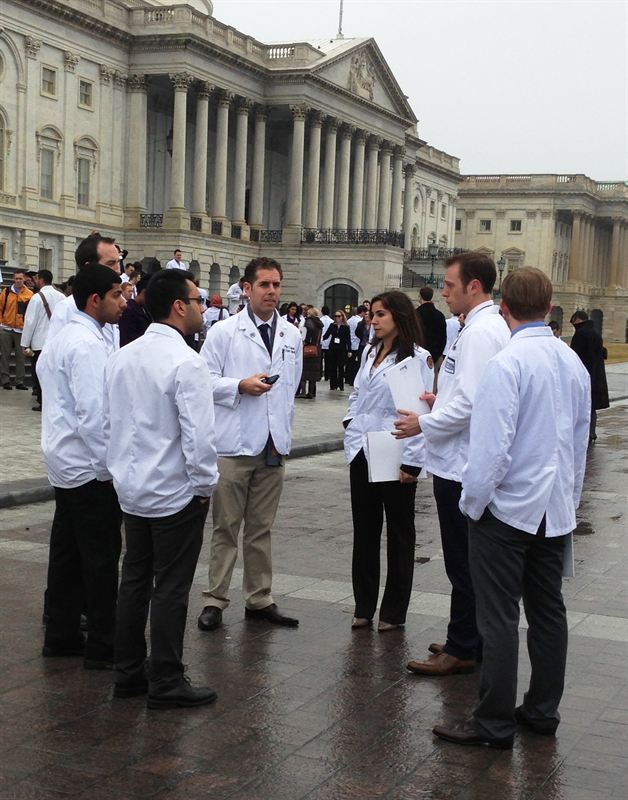AMA Medical Students Tell Congress: Protect Residency Programs So We Can Care for Patients
Medical student advocates call for retaining funding for graduate medical education, increasing training positions to address physician shortage

FOR IMMEDIATE RELEASE February 11, 2013
Please note: Photos attached
WASHINGTON – Hundreds of medical students from across the country visited Capitol Hill today for the AMA’s medical student advocacy day. They urged Congress to retain Medicare funding for graduate medical education (GME) programs, known as residencies, and lift the cap to increase the number of Medicare-supported residency slots. As the nation deals with a physician shortage, it is important that all medical students can complete their training and care for patients. 
“Residency training gives new physicians hands-on experience and provides high-quality care to patients,” said AMA President Jeremy Lazarus, M.D. “Limiting residency slots available to train physicians as they leave medical school creates a bottleneck in the system and prevents the physician workforce from growing to meet the needs of our nation’s patients.”
The demand for physicians will grow as the U.S. population continues to age, life expectancy increases and 30 million newly-insured Americans have increased access to health care services from the Affordable Care Act.
Medical schools are expanding enrollment and making changes to prepare students for the future practice of medicine, and the AMA has announced a $10 million initiative to further accelerate change in undergraduate medical education. But that is just part of the continuum of medical education essential to produce physicians ready to meet future demands. The number of GME slots has been frozen by the federal government since 1997, and U.S. medical school graduates will exceed the number of available slots as soon as 2015.
“Medical students, patients and physicians who are concerned about protecting GME slots to reduce the physician shortage can contact their elected officials through a new website, www.SaveGME.org,” said Dr. Lazarus. “The timing is especially critical as Medicare budget cuts from sequestration could have an impact on funding for graduate medical education.”
###
Media Contact:
Heather Lasher Todd
AMA Media Relations
202-789-7421
Heather.Lasher.Todd@ama-assn.org
About the American Medical Association (AMA)
The American Medical Association helps doctors help patients by uniting physicians nationwide to work on the most important professional, public health and health policy issues. The nation’s largest physician organization plays a leading role in shaping the future of medicine. For more information on the AMA, please visit www.ama-assn.org.



